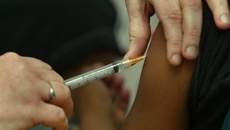
A baby with a tummy bug died at Gisborne Hospital in what is believed to be a tragic case of sudden infant death after co-sharing a bed with his mother, instead of sleeping in a cot offered by nurse.
While no one is to blame for the 12-month-old boy's death Coroner Bruce Hesketh says it highlights the dangers of placing an infant in an unsafe sleeping environment and there are lessons to be learned.
"I have no doubt [his mother] meant well when keeping [her son] with her, it was what he was used to," he said after an inquest this year into the baby's death. "In this sad case, no one was fully aware of how vulnerable [he] was at the time."
Several changes have now been made at the hospital, including Safe Sleep refresher training for staff in the hope of preventing further tragedies.
"His death was tragic and our thoughts are still with his family on their sad loss," Hauora Tairāwhiti chief executive Jim Green told the Herald.
The baby and his family had only just moved from Australia in Septemer 2019 when they were struck down with a tummy bug and the child ended up in the Emergency Department at Gisborne Hospital (Hauora Tairāwhiti) with diarrhoea and vomiting.
The boy was treated and discharged but when he didn't improve the next day his mother, who was heavily pregnant, returned with him and he was admitted to the Paediatric Ward.
Hesketh said a cot was brought into the room for the baby to sleep in but his mother refused, saying they normally co-slept and would use the single adult-sized bed in the room - despite the advice of the nurse caring for him.
"The nurse advised this inquiry that co-sleeping is discouraged on the ward but ultimately the nursing staff cannot enforce safe sleep practice when the infant is over 6 months in age."
The baby was checked on through the night by medical staff and his mother last saw him awake at about 4.30am when he had electrolyte fluids before going back to sleep.
She left him propped him up in the bed with a blanket tucked around him before heading off to make a hot drink and have a cigarette outside.
When a nurse came into the room just before 6am to check on him he had slid down the bed and the blanket was partially covering his face. He was unresponsive and could not be revived.
The coroner said despite being the boy being sick, an autopsy was unable to find any cause for his death. He didn't believe the blanket played a role.
Instead, he said it had "all the hallmarks" of Sudden Infant Death Syndrome Unexpected Death in Infancy (SUDI), Sudden Infant Death Syndrome (Sids) in particular.
"Sids is where no identifiable cause of death can be found following autopsy, clinical history, and scene examination. These babies usually die in their sleep. [His] falls within this category."
More than 900 children under the age of 1 have died in New Zealand from SUDI since 2002, 56 of them in 2020.
The coroner did not make any adverse finding against the hospital as nursing staff did discuss with the issue of safe sleeping environments with his mother and it was her choice to have the cot removed from the room.
He did, however, recommend changes to some of the nursing assessment forms that are used when children are admitted to the Paediatric Ward.
One section has a specific box headed "Safe Sleeping Assessment" but it is only specific to babies less than 6 months old and in the baby's case had been crossed out given he was a few weeks over 12 months. It has now been amended to include children up to 12 months old.
He also suggested all staff working in the Paediatric Ward review the "Guideline: Safe Infant Sleeping-Birth to 1 Year" and adopt its principles when admitting babies and infants to the ward.
"[He] was just outside the age range captured by these guidelines, however in view of his physical state of health he was vulnerable to the identified risk factors," said Hesketh. "Despite him being just over 12 months old it would have been more appropriate for [him] to have had his own sleeping environment if that could have been achieved."
Green said the baby's death, including all facets of his care, was reviewed internally at the time.
He said the coroner's findings and the recommendations provided have been discussed with the Hauora Tairāwhiti paediatric team and implemented.
All staff in the children's ward have also completed refresher training on safe sleep guidelines and admission documentation has been updated to reflect national recommendations.
SAFE SLEEPING:
- Always put baby to sleep on their back with their feet at the end of their cot or basinet so they can't wriggle down under the blankets. Make sure their face is clear of bedding and don't use a pillow.
- Make sure babies have their own safe space to sleep, every time they go to sleep.
- If you choose to share your bed with your baby, keep them safe by putting them beside you in their own baby bed, like a wahakura.
- Don't smoke during pregnancy or in the home around a baby.
Take your Radio, Podcasts and Music with you









